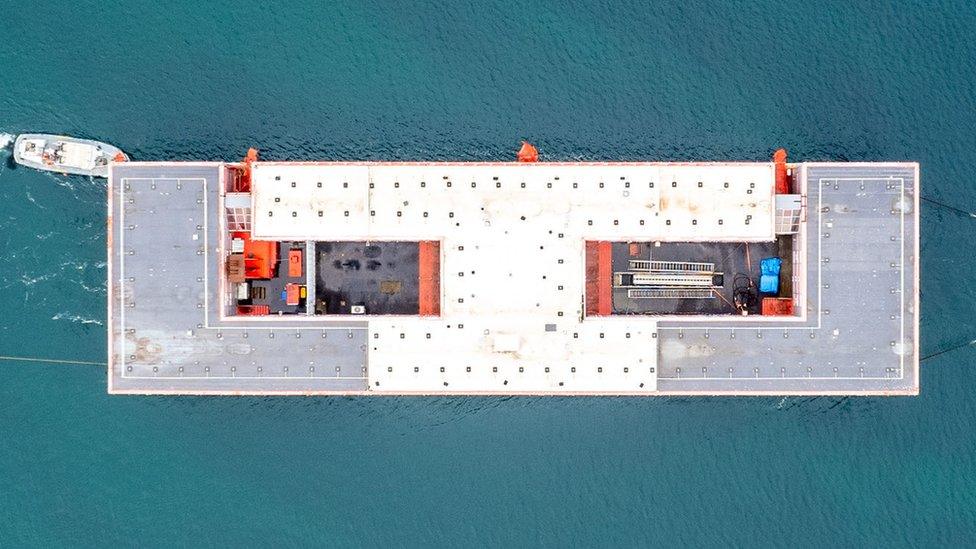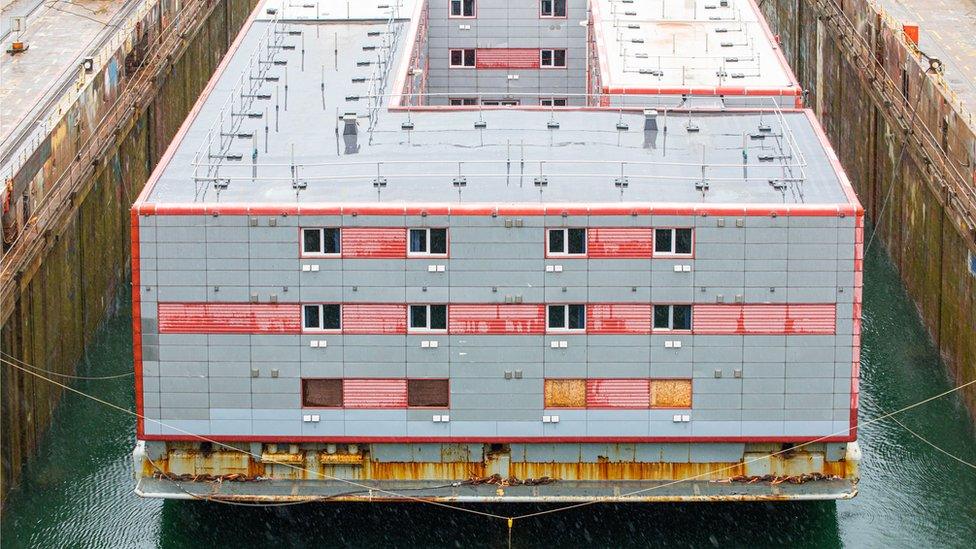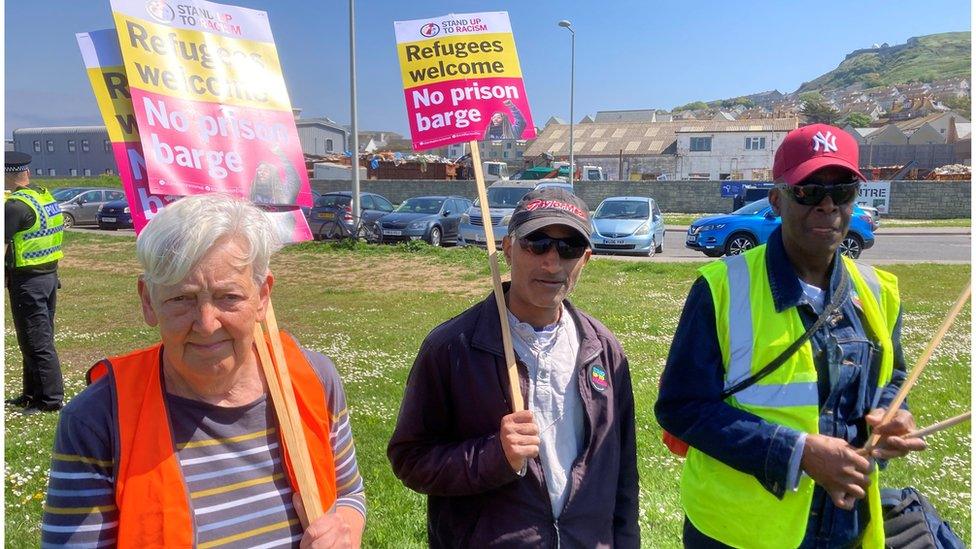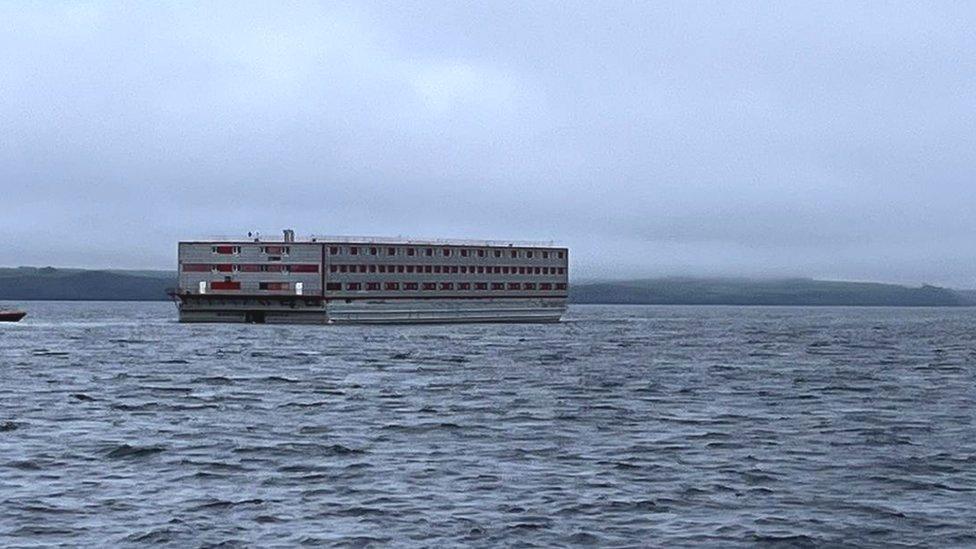Dorset migrant barge: Community talks on asylum seeker plan begin
- Published

Bill Reeves, chief executive of Portland Port, said: “We welcome this investment in the port and local economy"
A port has organised community awareness sessions with local groups ahead of the arrival of a migrant barge off the Dorset coast.
Meetings about the vessel, named the Bibby Stockholm, have already gone ahead with multiple Dorset councils.
Protestors held a rally in the area on Saturday opposing the arrival of the barge.
Portland Port chief executive Bill Reeves said he appreciates some locals still have "genuine concerns".

The barge will provide basic and functional accommodation and healthcare provision
The barge is expected to arrive in June and will house 500 "single adult males" for processing and possible removal from the UK.
Weymouth Town Council town clerk Jane Biscombe said the organisation's members "greatly appreciated" the opportunity to discuss their concerns, and said she hoped the project "treats the asylum seekers with respect".
A Multi Agency Forum (MAF), made up of local, regional and national representatives from Dorset Council, local NHS services, and other organisations, will meet weekly to plan and coordinate arrangements for the facility.
This will include a voluntary and community sector groups focused on coordinating support for asylum seekers by potentially providing organised activities including "English lessons, sport, and voluntary work".
Other discussions included proposed "selection criteria for those on board to reduce burden on health services and increase confidence in good behaviour."
On 5 April the government announced that barge would reduce the "unsustainable pressure" on the UK asylum system.

Sixteen per cent of all who made the journey across the channel last year were children
Last year 45,755 migrants crossed the English Channel to seek asylum in the UK, more than 60% more than the year before.
In a report, external published in March by the Refugee Council, two thirds of all those who made the crossing would be recognised as refugees if the UK Government processed their asylum applications.
By the end of 2022, less than one percent of English Channel asylum seekers had been processed by the Home Office.

Follow BBC South on Facebook, external, Twitter, external, or Instagram, external. Send your story ideas to south.newsonline@bbc.co.uk.
Related topics
- Published13 May 2023

- Published9 May 2023
